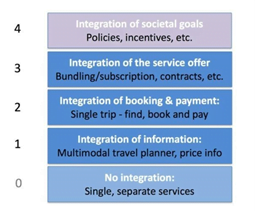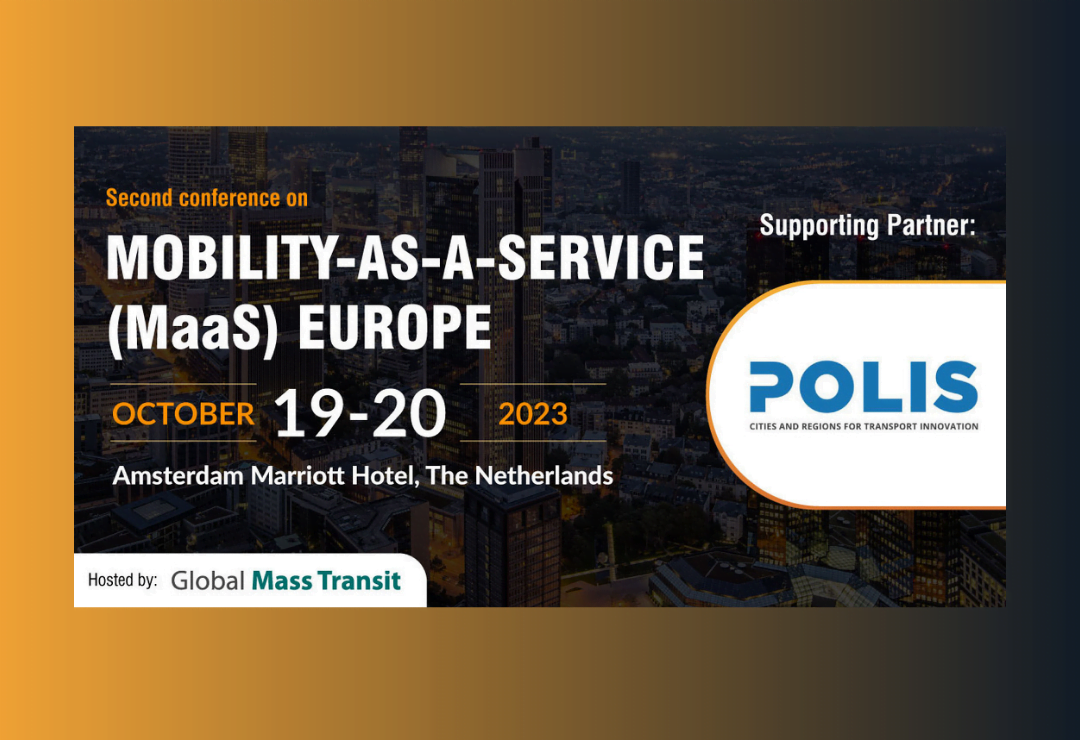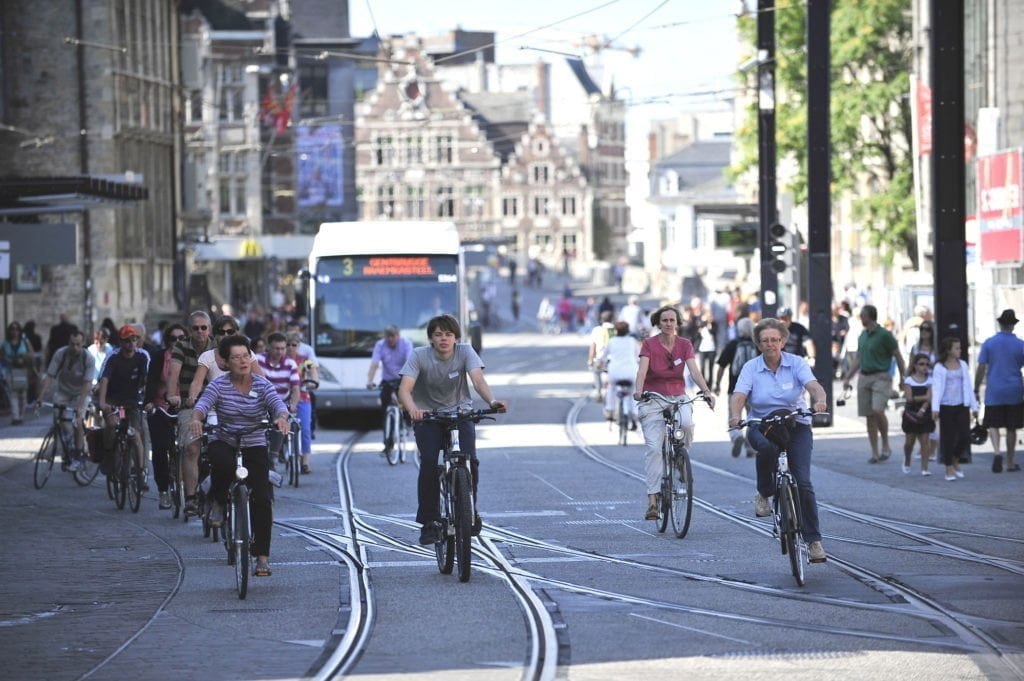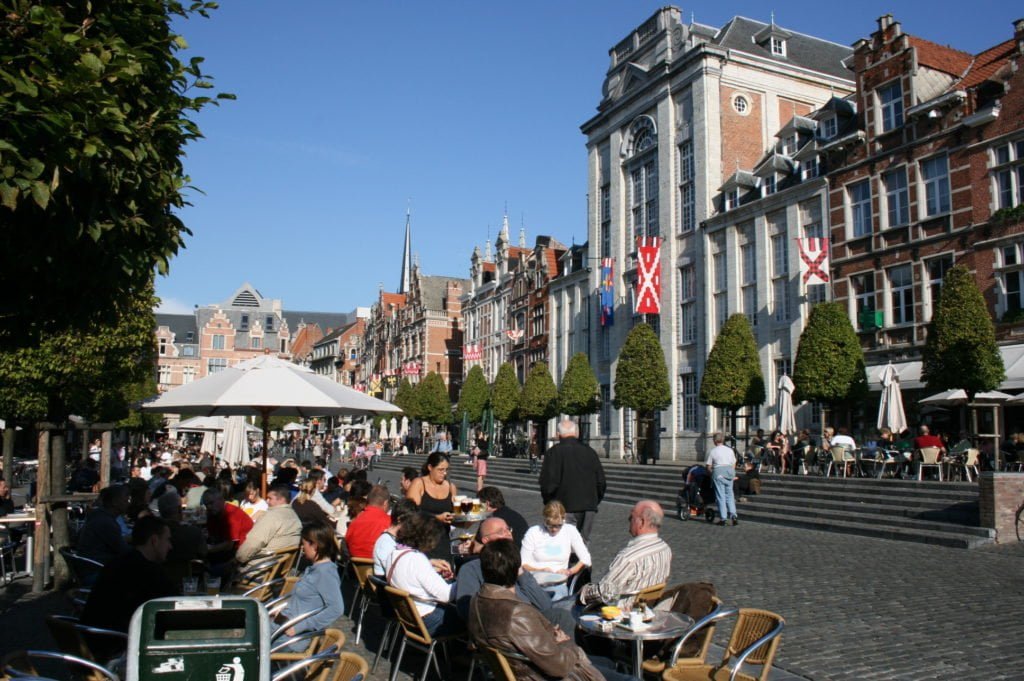Governing MaaS: the Flemish MaaS agreement framework
The governance of a MaaS ecosystem is complex and a challenge for many public authorities. With no one-solution-fits-all, the successful deployment of MaaS requires a complete integration across modes, information, booking and payment systems, with public and private MaaS actors working together smoothly, exchanging information efficiently securely, and coordinating their services.
The Flemish government has recently published the first version of a Flemish agreement framwork for MaaS, resulting from a broad consultation and co-creation process with relevant stakeholders. Flanders wants to create the conditions for a properly functioning, open MaaS ecosystem with adequate regulations. The results of the co-creation process were presented to the minister and top-level administration at the end of 2021 and in the next months, the Operational Taskforce will examine which steps need to be taken in view of the next iteration.
During this co-creation process, public and private MaaS stakeholders develop supported, dynamic and scalable (soft) regulations through a (multi-year) co-creation process. This approach is called 'soft' or 'collaborative regulation'. The stakeholders are co-owners of the implementation and the correct use of what they mutually agreed on. This way, Flanders wants to recognise and value the efforts undertaken for years by both public and private MaaS actors to develop a user-oriented, fair and sustainable MaaS ecosystem.
With this approach, the Flemish government intends to gradually climb up the ladder of the MaaS maturity levels through a cyclical participation process that runs over several years.
MaaS Maturity Levels

The parties that subscribe to the Flemish MaaS framework agreement are committed to sustainable combined mobility or combi-mobility, where users can combine different transport modes during the same route (e.g. pre-route by bicycle, then train and finally a follow-up route with a shared car) and combine different vehicles spread in time (e.g. today the bus, tomorrow the bicycle and the day after tomorrow the shared car). MaaS can provide travellers more user-friendly access to combi-mobility.
With this agreement, the MaaS core stakeholders in Flanders are aiming to focus on combined mobility in both urban and rural areas, during peak and off-peak hours, and for all travel purposes, including leisure time trips. This way, the agreement framework aims to ensure that all users, with a focus on social inclusion, choose sustainable modes to move around smoothly.
Who is involved in this process?
Five MaaS stakeholder groups were established in the autumn of 2020. Together they form the core of the MaaS ecosystem: to a greater or lesser extent this is their 'core business'. They include:
- Users
- MaaS providers
- transport providers
- local authorities
- data brokers
The Flemish government is deliberately not involved in this: its role is to facilitate and support the process. Insofar as it is possible, the government will cooperate in putting the results into practice, and in executing the concrete agreements.
What has been accomplished so far?
Through the participatory process that kicked off in 2020, a number of basic agreements were mapped out in order to eventually arrive at a Flemish MaaS agreement framework. These basic agreements can be seen as a starting point for building the final framework and identify 'minimum quality requirements' that the actors involved (jointly and in relation to each other) deem necessary in order to achieve a closer cooperation.
Collaboration is essential for an open MaaS ecosystem to work optimally. As the development of MaaS proceeds gradually, these agreements will also evolve further and gradually increase the MaaS maturity level.
Appointments for the stakeholders
The basic agreement sets out some initial commitments for the MaaS core stakeholders that will be further developed and polished in future iterations of the framework. Here are some relevant highlights:
- MaaS providers must apply the principle of sustainable mobility in their market offer to users, striving for a diverse range of mobility services. MaaS providers guarantee a transparent representation of all transport providers and price setting and, if parameterizable, under the control of the end user who indicates his preferences.
- If commissions or fees are imposed on transport providers, the aim is to achieve a commission or fee that is proportional to the added value brought by the MaaS provider.
- MaaS and transport providers make clear agreements regarding complaints handling. It must always be clear to the user who is the first point of contact for complaints.
- Local authorities commit to support the development of the MaaS ecosystem with accompanying measures,g. supplying available and relevant local data according to the data-for-data principle (i.e. data reciprocity) or align regulations and licensing terms with other local authorities to create a transparent work environment.
- Local authorities position themselves as full and equal partners for all MaaS and mobility service providers, both in terms of rights and obligations. They are able to evaluate and adjust the MaaS agreement framework when needed to allow for consensus as much as possible.
- General commitments on data:
- Recognized stakeholders are committed to using existing standards as a reference and to using OSLO (Open Standards for Linking Governments[1], the Flemish standard for the exchange of information) as the semantic reference model and process.
- The recognized stakeholders commit themselves to drawing up a data governance framework, in which the rules for data exchange are laid down transparently.
- In terms of data access, a minimum data set is required to meet the user's needs.
- To avoid extensive discussions about the modalities of data exchange regarding each individual data source, it is proposed to establish reusable policies based on data categories
The basic agreements were subject to a public consultation, and some of the commitments have already received enquiries for further definition or clarification. Additionally, the text highlights the need to further work on these commitments, considering the different points of view that exist amongst the MaaS stakeholders, for instance with regard to providing access to all ticket and subscription schemes from the transport providers. All stakeholders agree that added value for everyone must be sought, but the views on how this should be done differ between parties. These issues will be addressed and clarified in future versions of the framework.
Policy Recommendations for the Flemish government
In addition to establishing guiding principles and appointing commitments for the different MaaS core stakeholders, the basic framework agreement also sets out some issues that need to be addressed by the Flemish Government. Some highlights from the recommendations laid out to the regional government are:
- Stimulating harmonisation of local license models
- The policy regarding MaaS needs to be coordinated and linked with other regions and the federal level.
- In order to allow a transport and MaaS provider to be recognised, minimum quality requirements must be imposed by the Flemish government in the areas of:
-
- permits, financial capacity, professional qualification and expertise, working conditions....
- sharing data & insights with government and relevant stakeholders
- financial guarantees towards user & transport providers
- providing and formulating a minimal user & transport provider support
- In its capacity as transport authority, the Flemish government is asked to take the necessary measures to monitor this agreement framework and act as mediator in case of conflicts.
- An integrated third-party payer system at the Flemish level (including for subscriptions) with local accents needs to be further developed to make it possible for other players to integrate this third-party payer system.
What will happen next?
Currently, the Flemish MaaS ecosystem has reached the maturity level 2 - every MaaS operator or carrier can offer users single combi-mobile movements on its platform. Planning info, booking, payment and aftercare are offered in an integrated manner.
In 2022, the goal from the Flemish government is to reach MaaS maturity level 3 while continue working in the framework agreement, reviewing some of the previous agreements or adding new ones based on experience, advancing insight and technological developments.
To read the full text, visit the website (in Flemish) here.
[1] https://overheid.vlaanderen.be/oslo-wat-is-oslo





